Turkey's president plans provocative 'picnic' in symbolic Cyprus ghost town
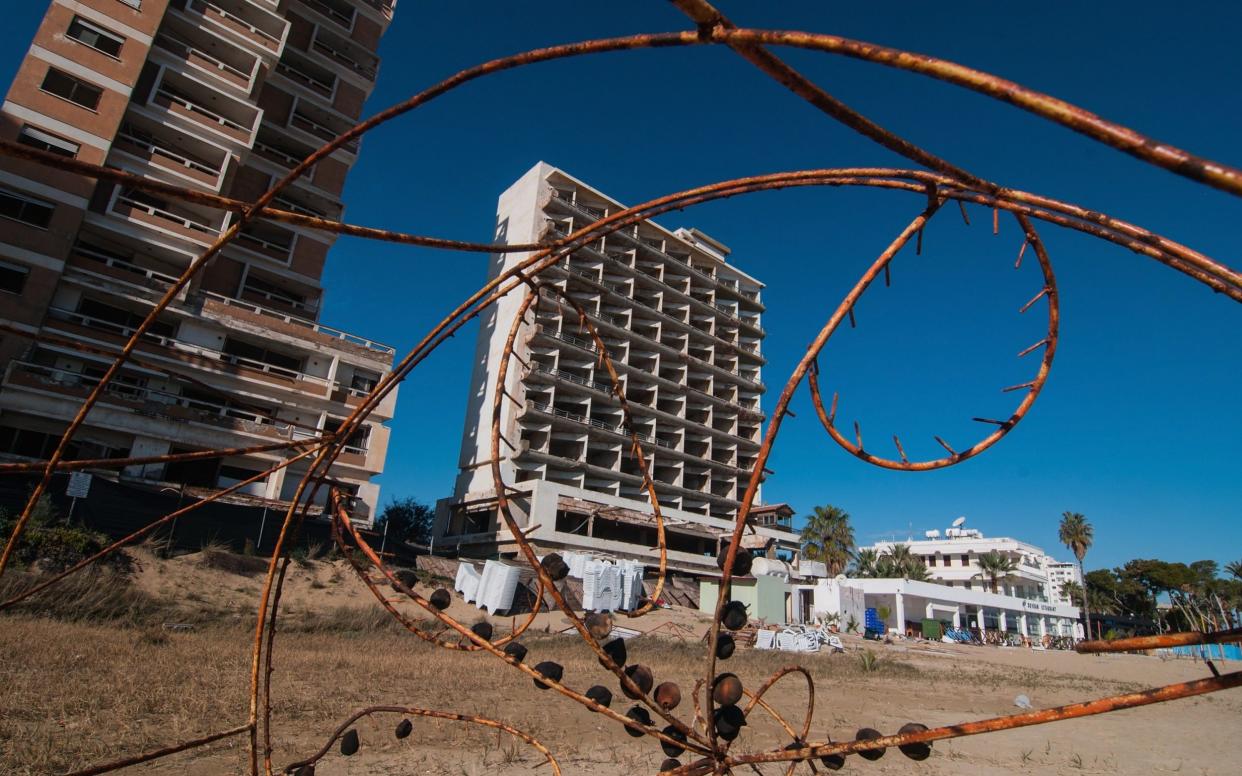
Turkey’s president is to make a provocative visit on Sunday to a once glamorous holiday resort that for nearly 50 years has been a surreal ghost town in the no-man’s-land that divides the Greek and Turkish parts of Cyprus.
Recep Tayyip Erdogan has infuriated many Greek Cypriots by saying he will have “a picnic” amid the ruins of Varosha, a town of abandoned high-rise hotels, dilapidated restaurants and overgrown gardens.
The Turkish leader announced the visit to Varosha, which has been sealed off since Turkey’s 1974 invasion of the island, during a news conference in Ankara last month.
“We can have a picnic at Varosha,” he said. “We see it on screen, now we want to see it for ourselves.”
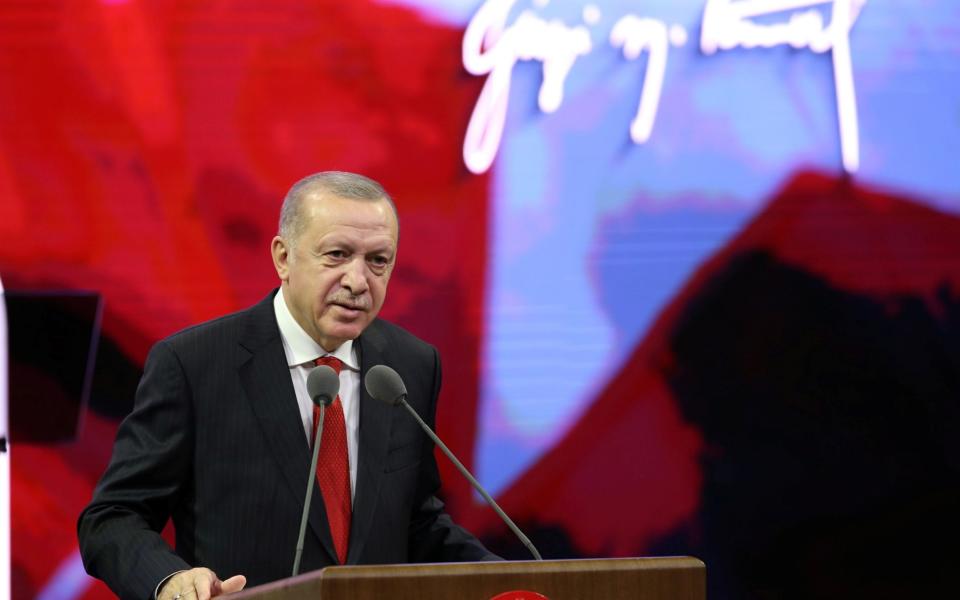
Tensions over Varosha are already high after the government of the self-declared Turkish Republic of Northern Cyprus – which is recognised only by Ankara – opened up parts of it to day-trippers for the first time in decades.
Varosha used to belong to Greek Cypriots but tens of thousands of them had to flee when the Turkish army invaded the island, in response to a coup intended to annex Cyprus to Greece.
A protest against the president’s visit will be held by Greek Cypriots at one of the border crossings that allows access between the two parts of the island.
Demonstrators will rally against what they call Ankara’s “unacceptable and provocative actions” in Varosha, which is a suburb of the coastal city of Famagusta.
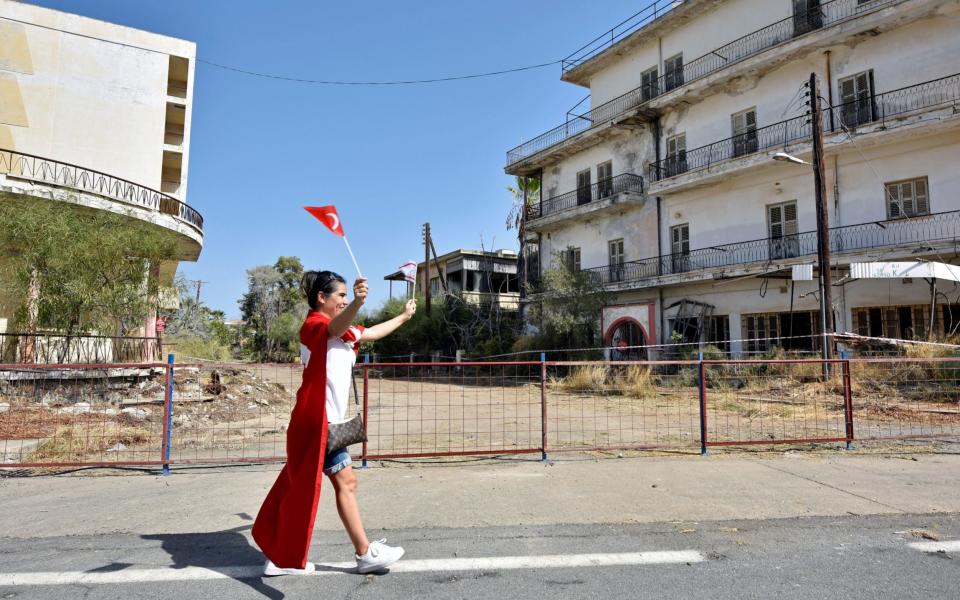
“This is not your homeland, Mr Erdogan. This is no place for a picnic,” Greek Cypriots said in a video released to protest against the visit.
“It was taken by war, at gunpoint. Famagusta does not belong to you, nor to investors from Turkey, nor to settlers. This is our land. Our streets, our houses, our gardens, our churches. For nearly half a century, we have gazed at our city from afar.”
Unilaterally opening up the resort for redevelopment would contravene UN resolutions and international law, they said.
Vasia Markides, a Greek Cypriot who is in favour of turning Varosha into a sustainable eco-city with the participation of Turkish Cypriots, is dismayed by President Erdogan’s visit.
“It’s a very passive-aggressive move which is insensitive towards both communities,” she told The Telegraph.
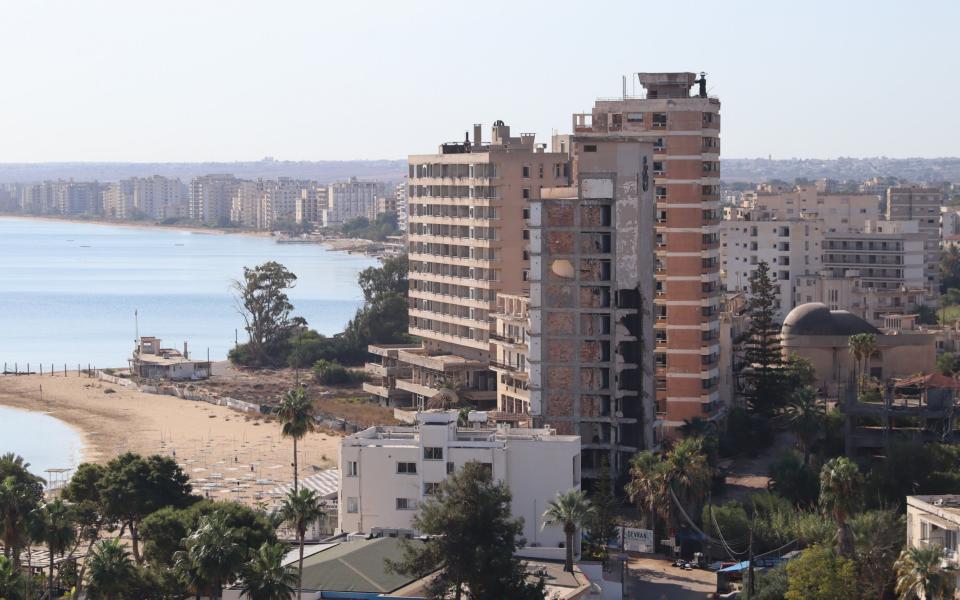
“Famagusta is the one place that represents the potential for unity and a resolution to the Cyprus problem. Many groups from both sides have worked together to bring forth dreams about how it could be revived and become an example of peaceful coexistence,” said Ms Markides, the daughter of an exile from Varosha.
“So this just feels like a big slap in the face. It’s clearly politically-motivated and ego-driven.”
It is not just Greek Cypriots who are angry at President Erdogan’s intervention; hundreds of Turkish Cypriots staged a protest this week against Ankara’s “interference” in the island.
“We are telling Turkey: you can't run northern Cyprus from Ankara,” said Gulsen Ercin, one of the protesters who took part in the rally in northern Nicosia, the island's divided capital.
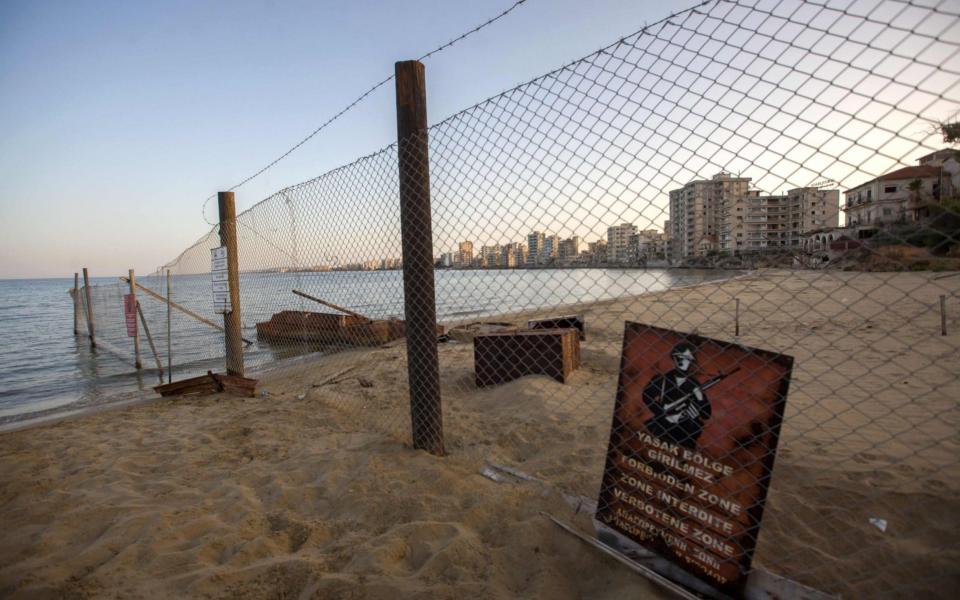
The protest was attended by Mustafa Akinci, the moderate leader of Turkish northern Cyprus until he was defeated last month in an election by Ersin Tatar, a nationalist hardliner backed by Turkey.
“No picnic at the protest of others,” the protesters chanted. More than 60 Turkish and Greek Cypriot organisations signed a joint petition calling for the opening up of Varosha to be stopped and for the Turkish leader to stay out of Cypriot affairs.
President Erdogan’s visit will do nothing to assuage the acute tensions in the eastern Mediterranean, where Turkey, Greece and Cyprus, along with other players such as Egypt and Israel, are locked in a battle over huge oil and gas reserves beneath the seabed.
Ahmet Sözen, a professor of political science at Eastern Mediterranean University in Famagusta, says President Erdogan’s visit is part of a much bigger power play involving the dispute over natural gas deposits in the region.
“His message to the Greek Cypriots is to say, if we want, we can make a move on Varosha, we can open it up, so it’s time to sit down and negotiate, to include the Turkish Cypriots in decision-making about hydrocarbons,” he told The Telegraph. “It’s a bargaining chip, part of a much bigger jigsaw puzzle.”

